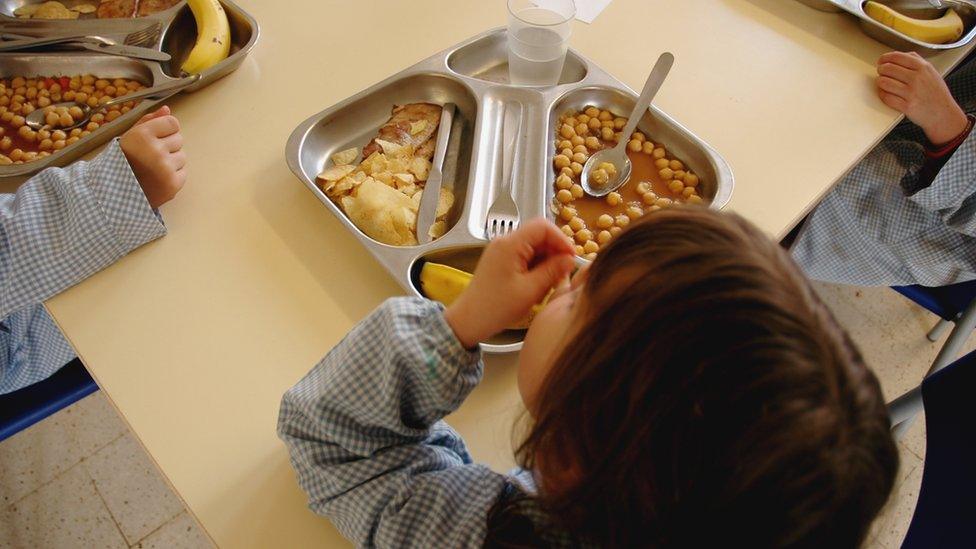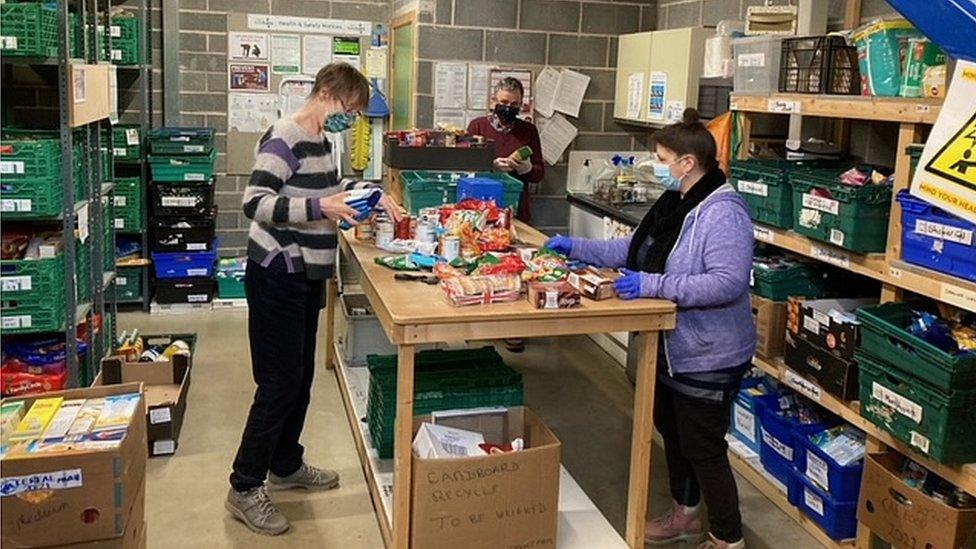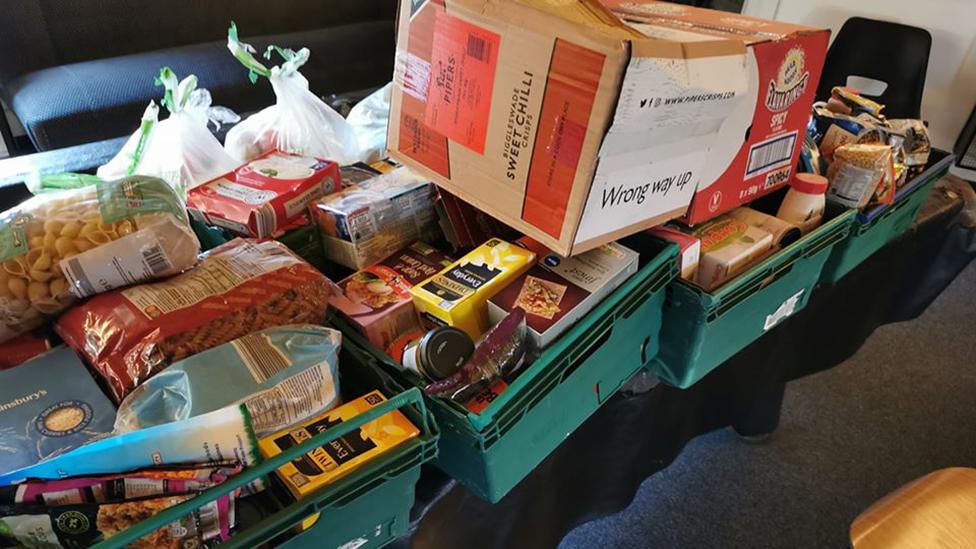Covid: Bradford food bank demand 'trebled during pandemic'
- Published

Food banks volunteers said they've noticed a significant shift from single people using their services to families
Families drove an increase in demand for food banks in Bradford since the start of the pandemic, figures suggest.
Three times as much food was handed out across 21 sites during peak demand when compared to pre-Covid levels in the district.
A manager at one food bank said reduced hours, furlough pay and bigger utility bills incurred during lockdown had pushed more families to seek help.
The government said it was "committed to supporting the lowest-paid".
A recent report revealed that 30.4% of children in Bradford were in "absolute low income families" where at least one benefit is claimed - a figure double the England average.
Data from Feeding Bradford and Keighley, a network aimed at ending food poverty in the district, showed:
45,082 daily individual food parcels were handed out by 21 of the network's food banks in May 2020, compared with 15,796 in February 2020
During peak demand, 10,522 people sought help from the food banks
Records for February 2020 show 4,496 people used the food banks
The Bradford Institute of Health Research identified 169 food banks or other community food assets operating in the district between August and November, with 59 established during the first lockdown period.
Because many groups provide support on an informal basis, data is unavailable for all food banks in the district.
Bradford North, which is part of the Trussell Trust charity's food bank network, said it took on a second food storage warehouse to cope with demand during 2020.
Manager Franco Biancardo said: "We've had an increase in families coming forward in this year in particular, and that's obviously meant a lot more food going out.
"A lot of people have lost their hours, they've been furloughed, they've had a reduction in income and they're home at lot more than they were, they have children at home and their utilities are going up, internet costs are up."

Some food bank volunteers have been given early access to Covid-19 jabs due to their front-line work
Bradford Council has helped provide early access to Covid vaccines for some front-line charity volunteers, with food banks currently limited to delivery services or food parcel pick-ups outside the building.
Cathy Henwood, from Feeding Bradford and Keighley, said: "Food banks are very good at signposting and offering that extra support for people, because a food parcel is just a sticking plaster, it doesn't actually help people move on from their situation.
"It's making sure people have access to advice and other things they need, that's been lost to some degree because of social distancing.
"We're hoping that food bank access to early vaccinations may help gradually return to more face-to-face provision."
During Wednesday's Budget, the chancellor announced a temporary £20-a-week increase in universal credit payments would be extended for a further six months.
A government spokesperson said: "We are committed to supporting the lowest-paid families and those most in need through the pandemic, which is why we're spending hundreds of billions to safeguard jobs and boosting welfare support by billions."

Follow BBC Yorkshire on Facebook, external, Twitter, external and Instagram, external. Send your story ideas to yorkslincs.news@bbc.co.uk or send video here.
Related topics
- Published18 February 2021

- Published14 May 2020
